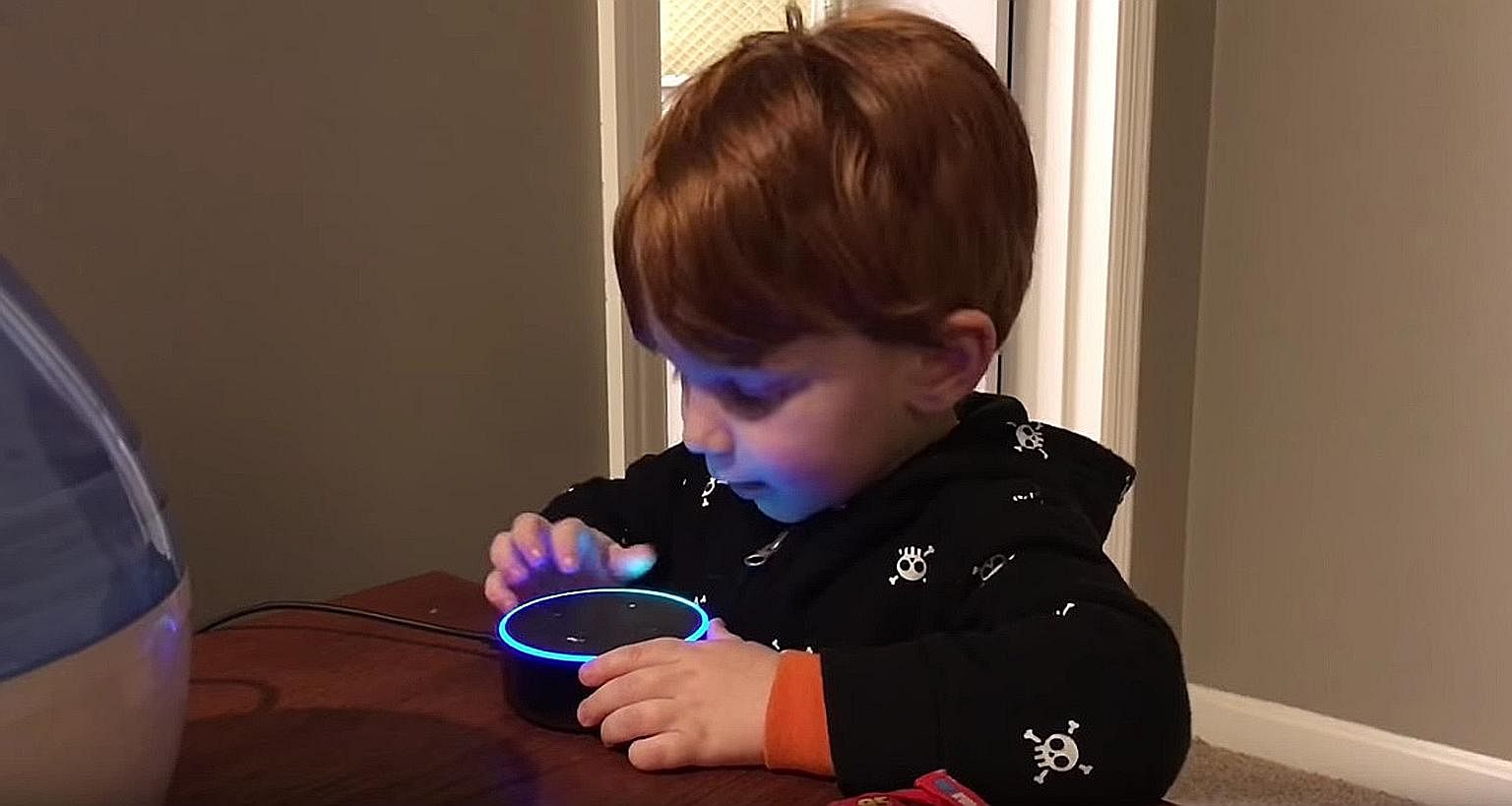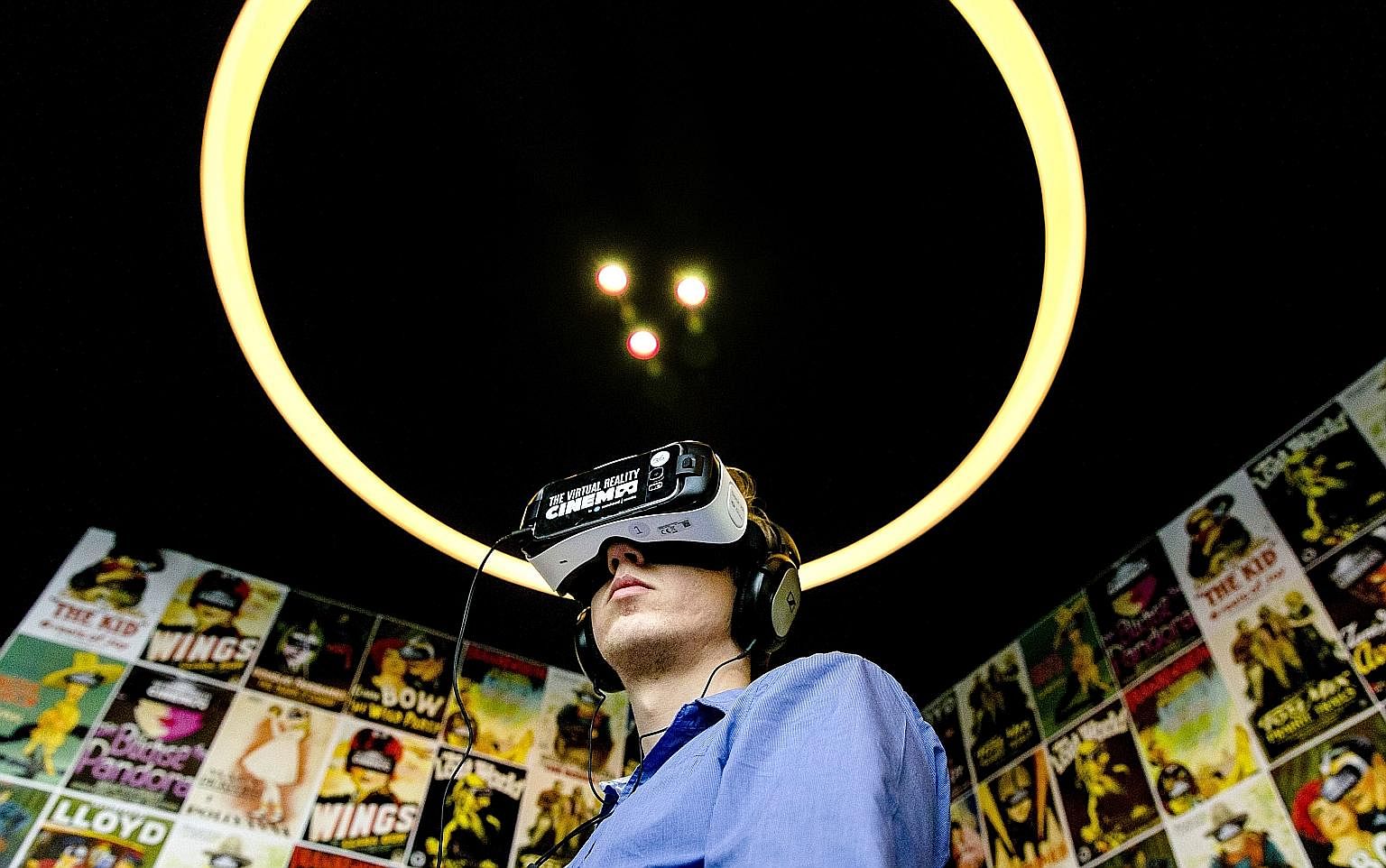Mr Trump and Olympics were hot on Google. Fake news or "post-truth" was trending on Facebook. And augmented reality got a big boost, thanks to Pokemon Go.
These were some key digital trends last year. What can we expect as we usher in 2017?
COMING TO YOUR HOME: AI
2017 will be the year when artificial intelligence (AI) transcends the realm of science fiction and enters the homes of mere mortals, say pundits.
AI-powered smart devices, which have become more affordable, are already making their presence felt.
Popular devices include Amazon's Echo, a voice-activated smart speaker powered by Alexa, who speaks like an efficient but no-nonsense secretary. There is also the newly launched Google Home, powered by the Google Assistant.
There is even a China-made version - DingDong - which caters to Mandarin and Cantonese speakers. Apple is also reportedly coming up with its own version .
These digital assistants respond to voice commands.

They can perform a whole range of tasks, ranging from answering questions about the weather and providing real-time news, to summoning an Uber ride and keeping to-do lists.
To activate these devices, you have to start your command with a "wake word" - "Alexa" for Amazon Echo, "Ok Google" for Google Home and "DingDong DingDong" for the China-made version.
Amazon's second-generation Echo Dot 2, which was launched last year, costs only US$50 (S$72). Google Home retails at US$129 while DingDong is reportedly sold for 900 yuan (S$188).
Just how popular are these devices?

The Echo devices were the best-selling products across Amazon last year, said the tech giant. While the company did not give specific numbers, it revealed that "millions" of these devices were sold, more than nine times the sales in 2015.
But the growing popularity of these smart devices - which some users would leave switched on round the clock - has raised new questions about electronic privacy.
In a recent case, US detectives investigating a murder in Arkansas sought access to audio that may have been recorded on an Amazon Echo found in the home of the suspected killer. Amazon was issued with two search warrants but refused to share information sent by Echo to its servers.
And smart as these devices may be, they do not have the answer to your every question. Or they may sometimes give the reply you least expect.
In a YouTube video being circulated last week, a young boy and his family got a rude shock when he asked Echo Dot to play his favourite songs. Alexa, the AI powering Echo, misheard his request and rattled off a string of pornographic phrases.
Nursery rhymes, it seems, may not be Alexa's forte. What about predicting trends for 2017?
-
NOTABLE TRENDS
-
#2016IN4WORDS: Twittersphere agreed that 2016 was a really tough year, citing the series of political shocks and celebrity deaths. These tweets summed up the gloomy sentiments: "Stop taking our idols", "Is it over yet?" and "I want a refund".
-
CARRIE FISHER: The US actress who rose to fame as Princess Leia in the Star Wars films, died last Tuesday aged 60, following a heart attack. A day later, her actress mother, Debbie Reynolds, 84, died after suffering a stroke.
-
#RAININSG: Not the year-end wet weather in Singapore, but the Korean pop star who held his solo concert here last Friday.
I decided to try it on my Amazon Echo Dot 2. Her reply left me disappointed: "I can't find answers to the question I heard."
But she was more prepared when quizzed about her New Year's resolution. Her answer: "In 2017, I am going to keep the laughs coming with a bunch of new jokes." AI can be funny, too.
VR GETS REAL
Pundits, who had proclaimed virtual reality (VR) as the hottest thing last year, continue to bet their money on it.
Over the last year, media organisations experimenting with immersive storytelling have stepped up their VR offerings.
In November, The New York Times, partnering with Samsung, launched The Daily 360. The target was to deliver one 360-degree video a day for an entire year.
Guardian, meanwhile, launched "6×9", its first VR project last year. The project places viewers in a virtual prison cell and examines how extreme isolation can cause psychological damage.
The Straits Times has also produced 360-degree videos, and is planning to roll out VR projects.
A key hurdle, however, is that readers may not have access to headsets, such as Oculus, Samsung Gear or Google Cardboard, which would enable them to enjoy the full immersive experience.
But tech companies and Web developers are working on new ways to allow users to enjoy VR sans the hardware. An example is WebVR, which tries to create the 3D experience on the computer or mobile phone.
AUGMENTED REALITY
FOR YOUR EARS Augmented reality got a big boost last year, thanks to the wildly popular Pokemon Go.
But have you heard of augmented audio?
Some companies are building devices to improve the user's hearing, either by helping to boost volume like a traditional hearing aid or cancel out noise - like cries from a baby on an airplane - by isolating specific sounds.
San Francisco-based Doppler Labs, for example, has launched its augmented audio device, Here One. Its earbuds can boost or reduce the volume, bass, treble and other aspects of live sounds in the environment.
Doppler Labs founder and CEO Noah Kraft told TechCrunch that audio-augmented reality takes the concept of augmented reality and "applies it to your ears".
"It allows you to still hear the world but it allows you to filter and curate how you want to hear, what you want to hear, and what you don't want to hear."
That certainly sounds good.

